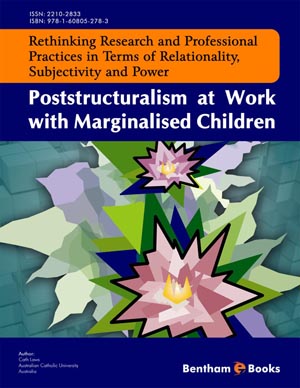Abstract
As detailed in Chapter 1, Researching special schools: a poststructuralist approach, this work explores the capacity to apply poststructuralism, in theory and in practice, in a setting where other discourses are dominant. I focus on my own work as principal in the context of a special education school where I worked with students categorised as ‘emotionally/behaviourally disordered’. I analyse the discourses that inform this kind of work, both from the position of one who inevitably took them up, even becoming expert in them, and from a Foucauldian position of critique which sets out to render these discourses less able to be taken up.
This chapter explores some of these discourses, in particular the ideas and practices around the management of students’ behaviour. I scrutinise the dominant practices at work in a special school, and in regular schools, to understand better the ways children and young people come to be subjected as ‘students’ and so come to desire to be the best possible students they can be. I then examine the educational/psychological processes used to inform the work of teachers who work with students who are read as failing to take up appropriate performances as manageable students.
Keywords: education, disability, emotional and behavioural disorders, behaviour management, discipline, binary/binaries, psychology, mental health/illness, cognitivist/ism, physical restraint.














